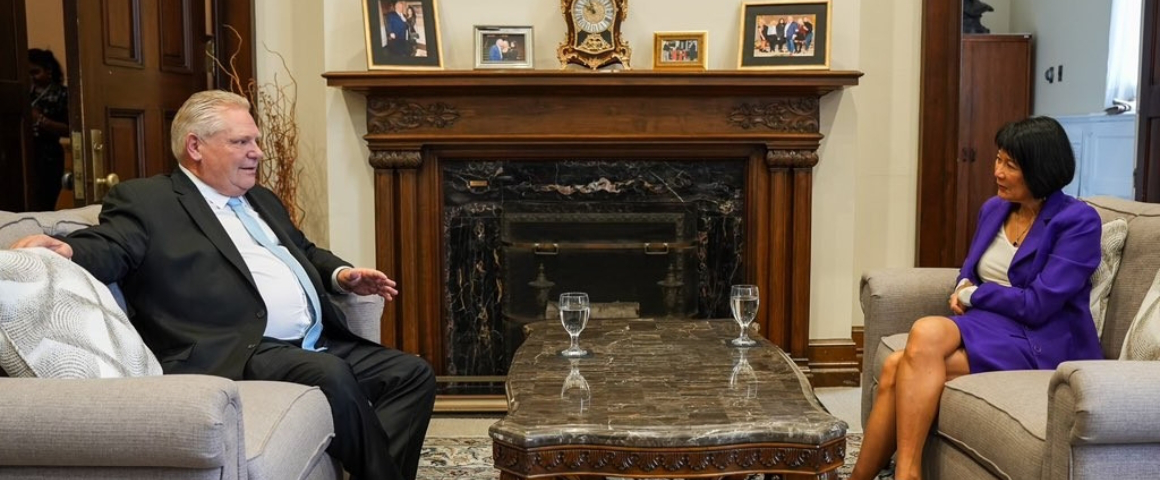PV Toronto Bureau
In mid-December, Toronto City Council unanimously agreed to implement the Ontario-Toronto “New Deal” which was announced at the end of November by Toronto Mayor Olivia Chow and Ontario Premier Doug Ford. But a deeper look at the deal suggests that while it alleviates some of the symptoms, a lot of the root causes of Toronto’s financial crisis remain unaddressed.
Both the provincial and municipal governments describe the deal as an historic agreement that will help the city achieve long-term financial sustainability.
But are such claims warranted?
The deal does provide for uploads of some expenses from the city’s balance sheet to the province, including infrastructure such as the Don Valley Parkway and the Gardiner Expressway which are rightfully provincial responsibilities, and which have soaked up the city’s capital budget for decades. However, these uploads still represent only a portion of a wide range of expenses that were downloaded onto Toronto in the 1990s by the Conservative government of Mike Harris.
Toronto’s current $1.5 billion budget shortfall is a product of regressive reforms which accompanied the forced amalgamation of six Metro Toronto municipalities in 1998. As part of that process, the Harris Tories downloaded the costs of transit, housing and social assistance, while maintaining municipal funding for public education. The latter levy, which currently consumes over $2 billion dollars from the city’s property tax revenue, allowed the province to aggressively shift funding away from commercial and industrial sources, which have a greater capacity to pay, and onto working people.
The consequences of an inadequate tax base and the obligation to fund provincial services have accumulated over the years. They are exacerbated by the fact that Toronto – along with all municipalities in Canada – is a creature of the provincial government and does not have the democratic control or authority necessary to address the predictable budget shortfall.
So, without addressing these root causes of the decay at Toronto’s core, the Ontario-Toronto New Deal seems to be at best a temporary reprieve from the worst aspects of a situation that is doomed to continue and compound.
Furthermore, the limited uploads come with a price – Queen’s Park expects the city to stand down in their political fight over Ontario Place, which Doug Ford is offering as a cash cow to his developer backers. In a nutshell, this means that if Toronto wants to secure some (badly needed) short-term funding from the province, it needs to give up more local democracy and autonomy.
Finally, we refuse the false choice between expanding regressive forms of taxation such as higher property taxes or the introduction of a Municipal Sales Tax (MST) on one hand or more cuts and privatization on the other, which are still a large part of the new budget deal discussion happening in the city.
In the face of this limited and problematic deal, the Communist Party’s Toronto Committee is calling for needs-based statutory funding for Toronto to provide good quality public services, free transit, reverse privatization and expand rent-geared-to-income social housing.
“A real solution to this crisis would mean a deal which takes the boot off the neck of working people, who are already facing a deepening affordability crisis caused by a massive transfer of wealth from workers to corporations through skyrocketing rents and prices and wage suppression. A deal which first and foremost sources its funds through statutory transfers from the provincial and federal governments, who have the progressive taxation tools needed to pay for services. Importantly, this deal must reject regressive taxation tools like the proposed municipal sales tax. Furthermore, property taxes should be limited to funding the servicing of property – water, garbage, sewage, fire and police.”
The Communist Party notes that it is possible for the city to ensure a decent standard of living for all its residents, but that this will only come about through struggle.
“Horse-trading with a provincial government reeling from one corruption scandal after another is not the only way to resolve this crisis, and it is far from the solution working people in Toronto need. Labour and people’s movements in the city should instead put pressure on the mayor to continue along the path of a real new financial deal for cities, and continue the work started by David Miller, before he too took a compromise in the form of the City of Toronto Act.
“Labour and the people’s movements must unite with progressive councils across the province and begin to build a movement which will win a real New Deal for cities.”
[Photo: Olivia Chow X]
Support socialist media!
If you found this article useful, please consider donating to People’s Voice or purchasing a subscription so that you get every issue of Canada’s leading socialist publication delivered to your door or inbox!
For over 100 years, we have been 100% reader-supported, with no corporate or government funding.




